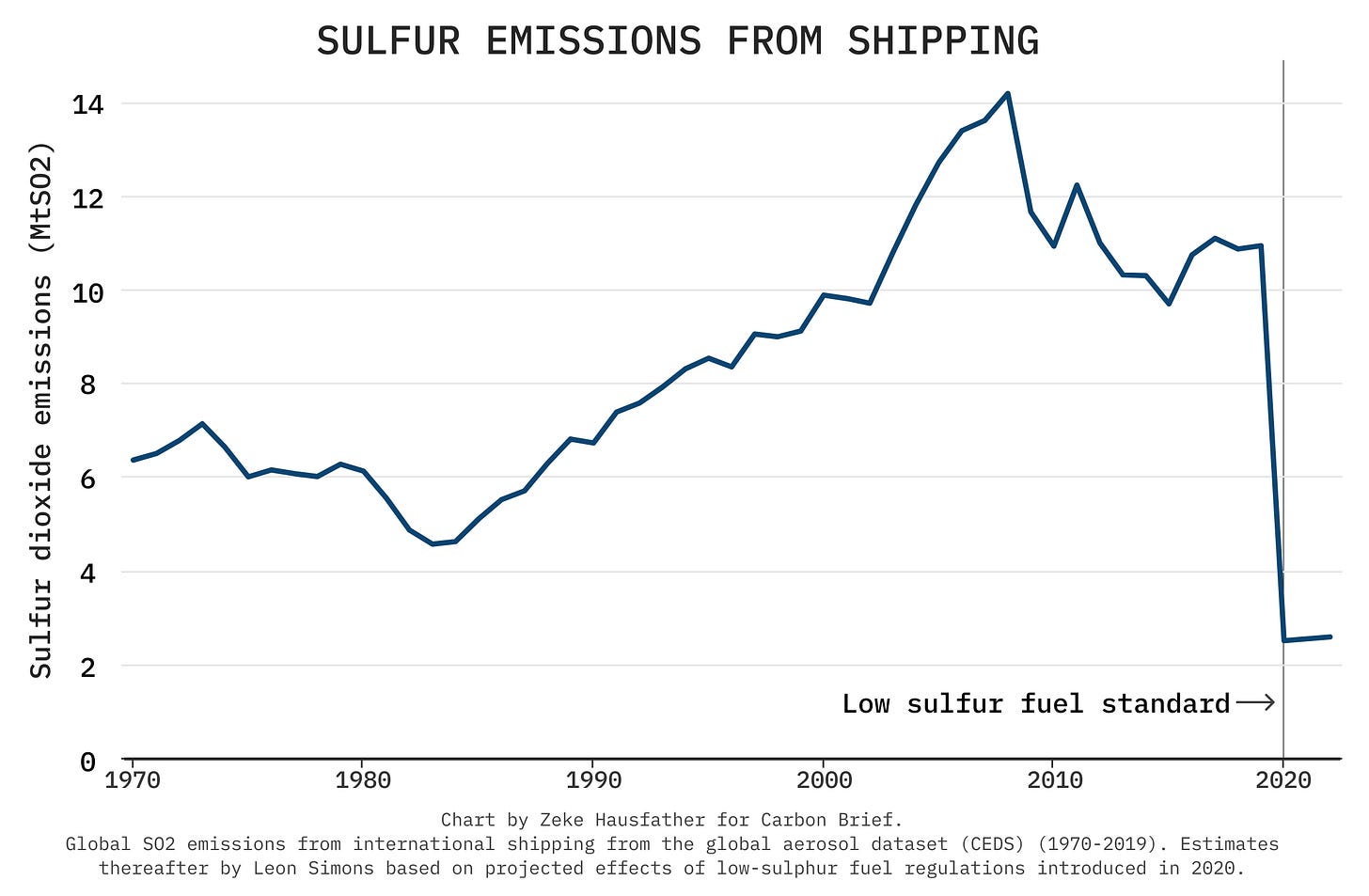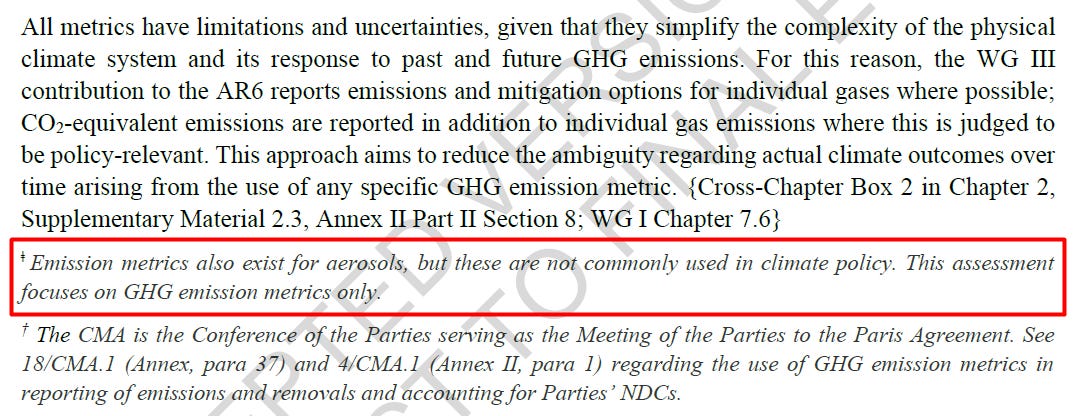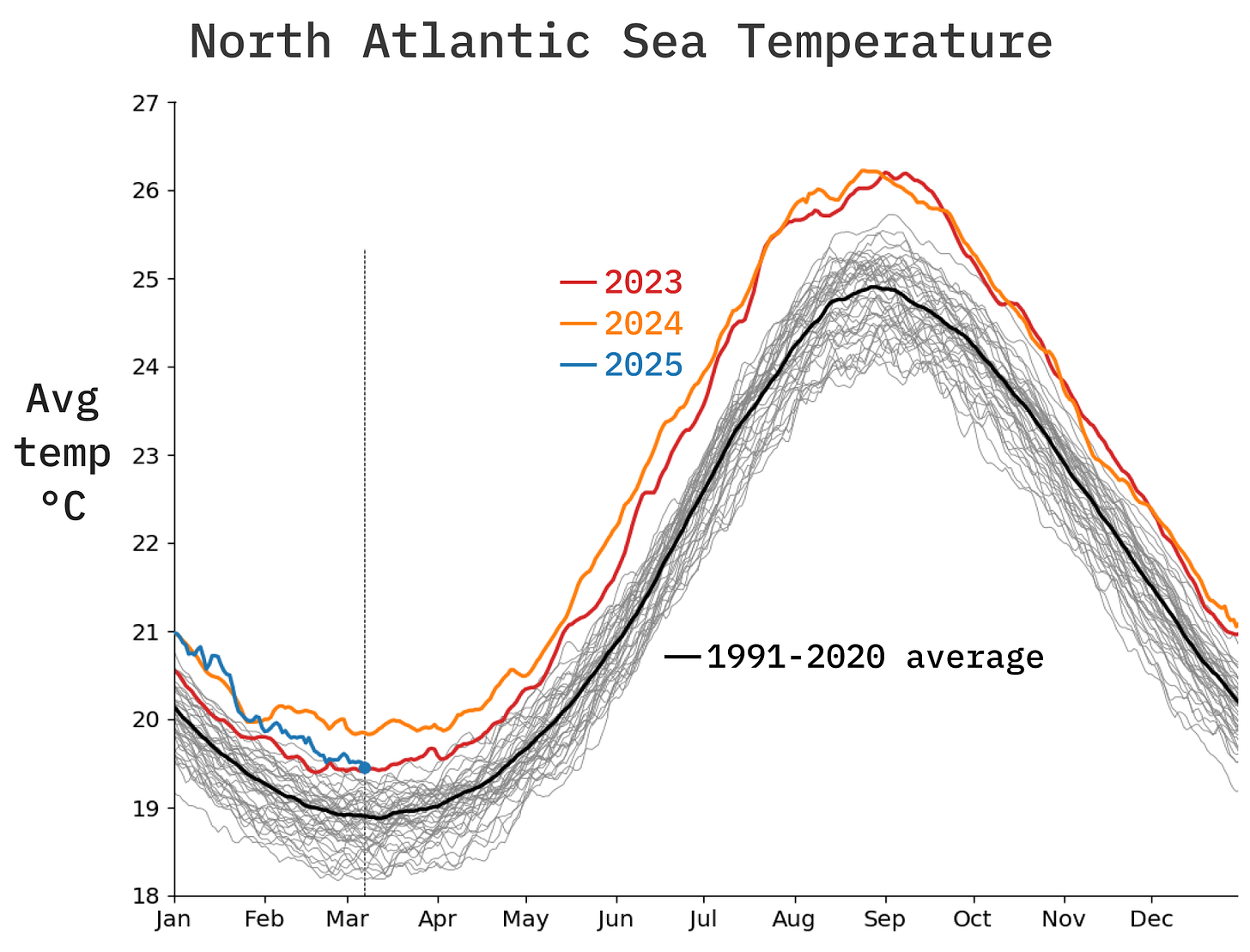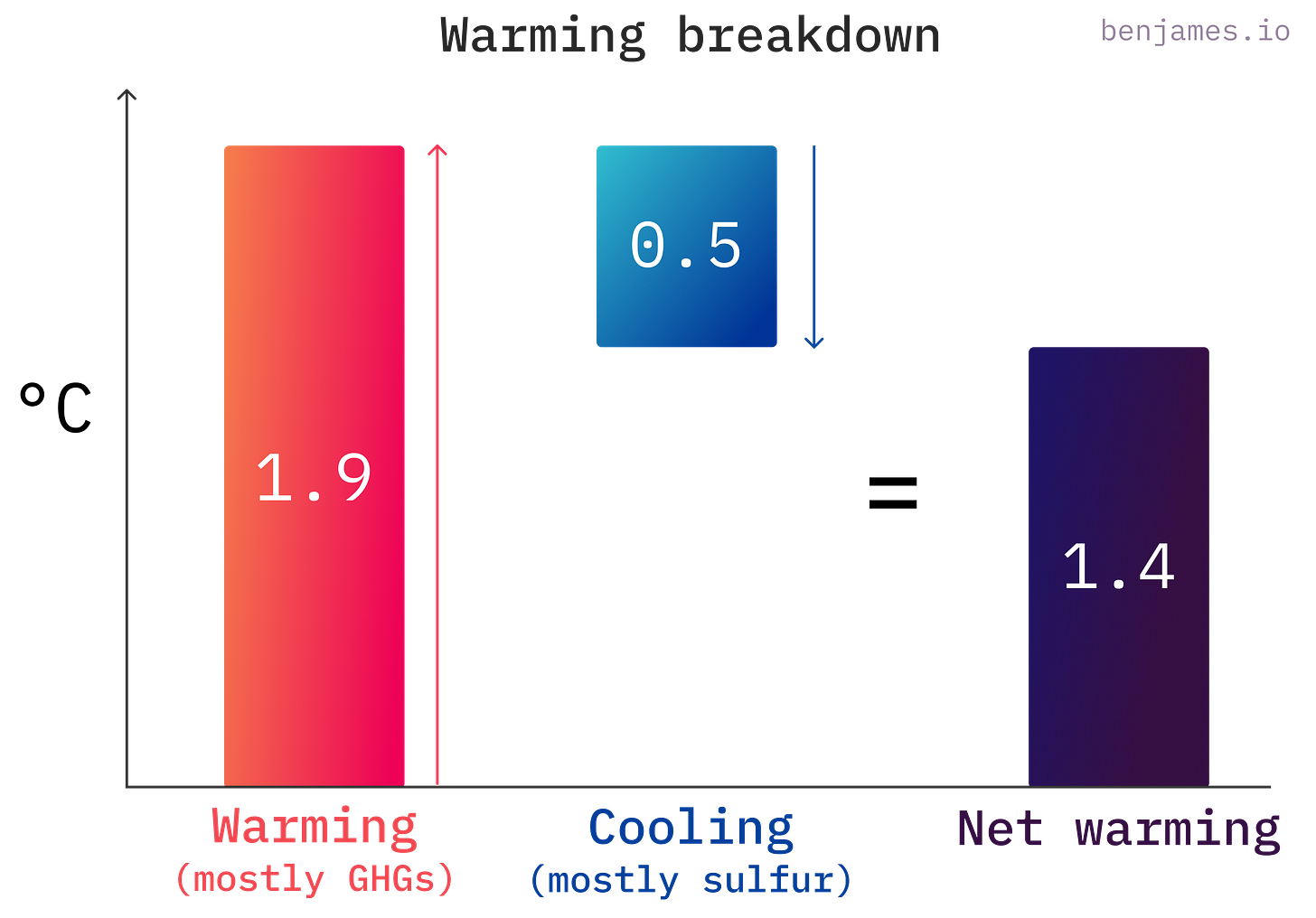The sea has heated up much faster than normal in the past three years.
253 million Hiroshima bombs of heat accumulated in the ocean between 2023 and 2024.1 Roughly equivalent to 8 billion people each putting 6 toasters in the ocean for a year.
Because of... shipping fuel
Some of this spike was caused by removing sulfur from shipping fuel.
When sulfur is released into the atmosphere, it reflects sunlight and cools the earth. Ship fuel contains more sulfur than other liquid fuels, so it has a net cooling effect when burned. The cooling effect from sulfur is much greater than the warming effect from CO2.
It is good for the climate that we have a emitted a lot of sulfur into the atmosphere, because it is masking a lot of warming. Without sulfur, we’d already be near 2°C.
But in 2020, we decided to take the sulfur out of shipping fuel.
This has quickly unmasked a lot of warming, because sulfur does not stick around for very long in the atmosphere (between a week and a year, depending on altitude).

By my calculations, the 2020 low sulfur fuel standard has caused roughly the same amount of warming as all the historical CO2 emissions of France.
From May 1st, it gets worse
Here is the Mediterranean Sea - it carries one-third of the world’s merchant shipping2.

On May 1st, ships in the Mediterranean will be subject to a new Emissions Control Area. It will limit sulfur content in fuels by an additional 80% (reducing the current 0.5% limit down to 0.1%).
This will increase warming in Europe!
Europe has warmed faster than the global average since 1980, and Europe’s rapidly declining sulfur emissions are part of the reason. Warming in Europe is consistently underestimated by climate simulations that do not take aerosols (like sulfur) into effect3.
(By the way, “aerosols” is the science name for small particles in the atmosphere)
This is very avoidable
Of course, we are not reducing sulfur emissions for no reason. Sulfur causes acid rain, and very nasty health effects when breathed in by humans. Port workers and coastal towns should not have to experience sulfur pollution in 2025.
But this does not mean that we need to reduce sulfur emissions at sea. We can turn on exhaust scrubbers in port, and turn them off at sea. We can store different fuel blends in different tanks, and switch over mid-voyage - this is already common in big ships.
Somehow, the climate policy machine continues to look the other way, despite the fact that declining aerosols might drive us towards climate tipping points faster than any other factor.
Here is what the mitigation group of the IPCC’s most recent Assessment Report had to say:

As other regions consider sulfur limits for shipping and aviation, I am surprised to see no targeted advocacy on behalf of the world’s temperature.
-
Thanks for reading - I am not a climate scientist and would love to know where I’m wrong :)
Shoutout to Leon Simons for all his work and distillation of the facts in this area.
The 0–2000 m Ocean Heat Content in 2024 exceeded that of 2023 by 16 ± 8 ZJ https://link.springer.com/article/10.1007/s00376-025-4541-3
H/t Leon Simmons for this unit of analysis.
https://en.wikipedia.org/wiki/Mediterranean_Sea
https://www.nature.com/articles/s43247-024-01332-8





